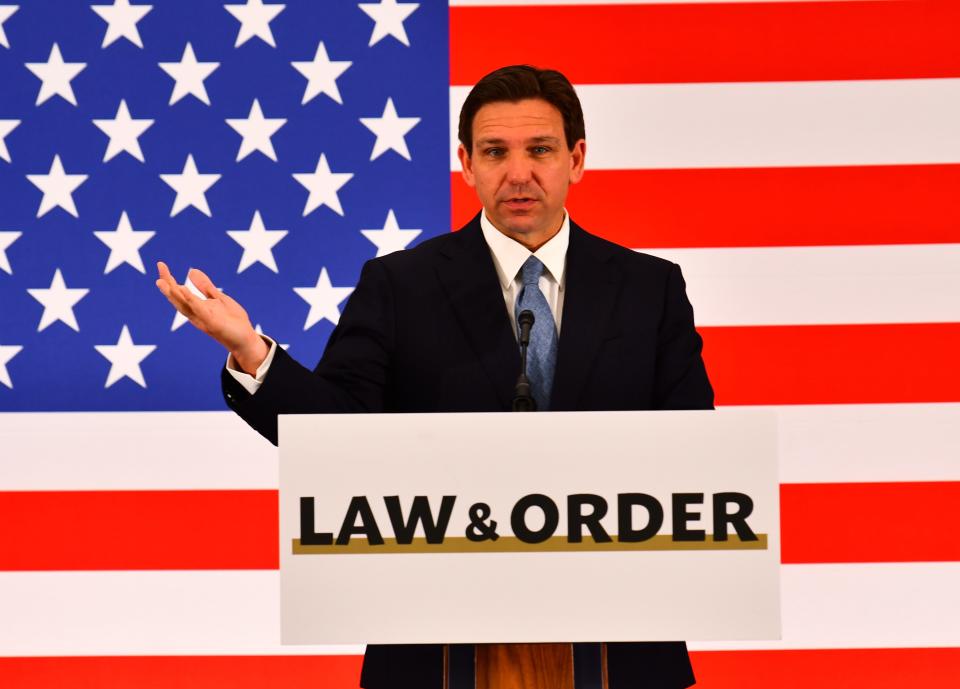Guest columnist: In some cases, death penalty may be only way to ensure justice is served

Dr. Joseph Thornton, a former psychiatrist and medical executive director for Florida's maximum-security prison, wrote a thoughtful editorial on March 18 in support of ending the death penalty. He described executions as state-sanctioned retribution, a unique form of homicide, and that more needs to be done to treat individuals who are sick or broken.
This is a subject I have struggled with for many years.
Judaic scripture was unique among other religions for its time by limiting punishment to crimes against individuals and society proportionally and eliminating retribution. This was done in the name of justice to preserve social order and the community's protection of innocents.
Some crimes are so egregious that death of the convicted perpetrator, after a fair trial, seems the only appropriate punishment.
Chief judge: Plans for riverfront should include support for Mental Health Offender Program
Rev. R.L. Gundy: Impact of jury disqualifications among Black citizens in death cases
Letters: If you want less crime and other change in Jacksonville, you have to vote for it
Over the last couple of decades, organizations such as the Innocence Project have exonerated several wrongly convicted individuals. Their families have struggled and suffered along with them, sometimes for decades, resulting in years that one can never get back.
For the most part, justice is served in the court system and an appeals process seeks to ensure that result.
Florida has seen swings in legislative proceedings of how many jurors must agree to impose a death sentence instead of life without parole. Previously, after U.S. and Florida Supreme Court rulings, it was required that the jury be unanimous in their deliberation. The Florida Legislature recently reduced that number to eight out of 12.
Given that mitigating facts are considered during the sentencing phase of a trial, and that appeals are guaranteed, it seems reasonable that a majority of 10 is preferred over eight, to ensure a single rogue juror does not exercise outsized influence.
In many cases a life sentence itself can be cruel punishment to certain individuals. But whether death or a life sentence, justice must be preserved to maintain a civil society where innocent people are supported by the powers of the state.

In addition to requiring 10 jurors in agreement for a death sentence, extra consideration should be allowed when a victim's family makes known its preference for life without parole. After the trauma of witnessing a loved one subjected to senseless violence, why cause them further pain by the state limiting the judge's discretion and arbitrarily mandating death to the convicted offender?
The opposite is worth equal consideration.
Many times, victims and their families have suffered mightily and sense a measure of closure knowing that justice was done by a punishment that fits the crime. How can an objective observer comprehend the depth of personal conviction and feelings in either position?
A universal application of only one judgment is not acceptable. Dr. Thornton perhaps discounts this fact; instead, he would have all prisoners rehabilitated and allowed to become better human beings behind bars. He postulates that more family support and mental health services will stem the tide of violent perpetrators. Perhaps so, but until then, will justice be served on behalf of so many innocent victims?
I personally would like to see more life sentences adjudicated but understand full well that the death penalty is valid in some cases. I lack the wisdom to know if the death penalty acts as a deterrent to crime, but it is a reasonable means for a just society to carry out a fitting punishment.

Rob Richardson, Jacksonville Beach
This guest column is the opinion of the author and does not necessarily represent the views of the Times-Union. We welcome a diversity of opinions.
This article originally appeared on Florida Times-Union: No way to know if death penalty truly a deterrent to crime

